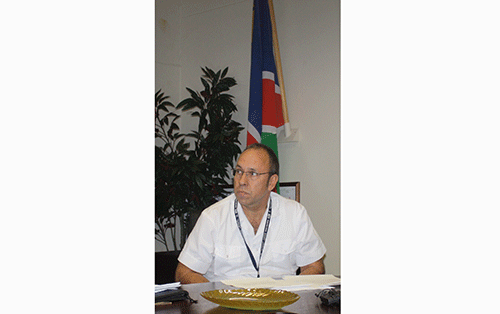Dr Rihupisa Kandando
I understand from the New Era edition of Friday, 24 June 2022 that one of the pioneers of the National Forensic Science Institute, Dr Paul Ludik passed on. This is happening almost on the eve of the 30th anniversary of the forensic institute.
It is in this context that as one of the founding members, it will be a negligence and abdication of responsibility if I fail to pay homage and tribute to Dr Ludik for having rendered encyclopedic input when the government conceived the idea to establish the forensic institute which materialised in 1992 and which he ultimately joined as a director in 1996 taking over from both Mr Leonard Nhari and Ms Nkomo.
This tribute to both Dr Ludik and the National Forensic Science Institute family emanates from my association and is not out of any nostalgic feelings or sense of praise but is for historical record.
The forensic institute had a humble beginning and the foundation thereof will be credited to His Excellency President Pohamba (then who was the Minister of Home Affairs) and his deputy late honourable Nangolo Ithete, permanent secretary Ndali Kamati, then inspector general Lukas Hangula for visionary leadership in addition to Dr Ludik who was the Chief of Clinical and Specialised Services at the Ministry of Health and Social Services and Mr Leonard Nhari from Zimbabwe who was a consultant on Forensic Investigation and Training commissioned by Commonwealth Fund for Technical Co-operation.
It was by a stroke of pencil that subsequent to the submission of Dr Ludik and Mr Nahri that in accordance with proposal on staff establishment as approved by the Public Service Commission, six (6) of us notably William Onesmus Nambahu (affectionately known as Warrant Officer Nambahu (WON) to borrow W from William and O from Onesmus when teasing him in the laboratory), Kaapaa Kaizemi, Rosalia Shifotoka, late Loide Ithete, Kongeli Kuuva (a young boy from Donkerhoek who used to buy ‘schnitzel’ burger from Le Bistro during lunch-time) and myself Rihupisa Kandando (known affectionately as professor at the laboratory as if they knew that one day I will join the academic world) responded to an advert of September 1992 for six positions of forensic analysts/senior forensic analysts. We commenced with the national duty in November 1992 and suffered the indignity of being housed in the basement of the ministry of home affairs and later again at the basement of ministry of defence before relocation to other places. The rest is history for our histographers but one thing is clear that those of us who were party to propounding, presenting and executing the ideals that form the basis for the establishment of forensic institute in its concrete form, are still alive and our nation state is blessed that we are able to assert expletively in the affirmative what we had in mind.
The forensic institute has widen our horizon of understanding to appreciate inter alia that forensic science is an application of applied science to law; to value that is a place where scientific techniques are used in an objective search for the truth in order to bring transgressors of the law to justice and on the other hand to protect innocent people from unjust prosecution; where we learnt about physical evidence that rests upon the contact theory known as “Locard” principle which relates to traces transferred when persons come into contact with one another; where we learnt that laboratory operating independently from the police can offer an independent and non – biased scientific opinion that can help prove the innocence or guilt of a suspect and that a police should not be allowed in a democracy to play the role of apprehender, prosecutor and judge; that it is mutually beneficial for both the police and forensic laboratory to only maintain a symbiotic relationship but operating independently of each other.
The forensic institute has provided us with opportunities which elevated us to what we consider as maximum international exposure on forensics such as attending the 13th Meeting of International Association Forensic Sciences in Dusseldorf, Germany; visit to the Metropolitan Police Forensic Science Laboratory at 109 Lambeth Road, London during September 1993.
I know that it is always painful to recall unpleasant events in one’s experience. At the same time, it can be a crime against posterity to suppress personal knowledge of events as witnessed or as many do to distort events in the circumstances of the moment.
*Dr Rihupisa Kandando is a founding staff of National Forensic Science Institute, lecturing Chemical Pathology at the School of Medicine, University of Namibia.



